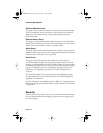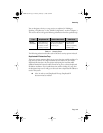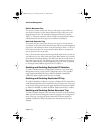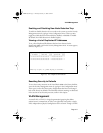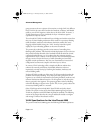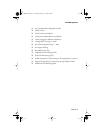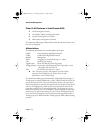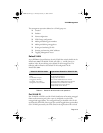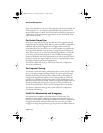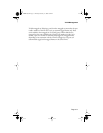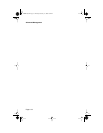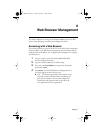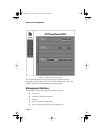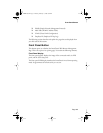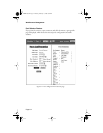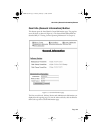Advanced Management
Page 5-16
frame. Ports should have a non-zero VID associated with them. By default, the
PVID of all ports is 1, in compliance with IEE P802.1Q specifications. The
allowed PVID range is 1-4094. The PVID of 4095 is assigned to ports that are
configured to receive only 802.1Q tagged frames. See the “Port Admit Frame
Type” section for details.
Port Admit Frame Type
All ports are set by default to receive both 802.1Q VLAN tagged frames and
untagged frames. According to IEEE P802.1Q, a port should be configurable to
admit only 802.1Q VLAN tagged frames. Untagged frames are filtered
unconditionally on the ports that are set to admit only 802.1Q tagged frames;
the source MAC addresses of the incoming untagged frames are not learned
either. When a port is set to receive only 802.1Q tagged frames, it’s PVID has
no meaning, and is therefore assigned the value of 4095. Incoming tagged
frames are classified to the VLAN represented by the VID in the tag header of
the frame. See the “Port Ingress Filtering” section for more information about
forwarding and filtering of received tagged frames.
This feature is helpful in setting up Intra Switch Link (ISL) configuration.
{need more information}
Port Ingress Filtering
This feature controls the learning and filtering behavior of the ports for which
there are incoming untagged and tagged frames. If a port’s ingress filtering is
disabled, the learning of incoming source addresses and the forwarding of
untagged and tagged frames happens in the switch regardless of whether the
ingress port is a member of the incoming frame’s VLAN classification or not.
But when ingress filtering is enabled, incoming untagged and tagged frames are
filtered unconditionally, as long as the ingress port is not a member of the
frame’s VLAN classification. There is also no learning of the source address.
This feature is helpful in setting up Intra Switch Link (ISL) configuration.
{{need more information}}
VLAN Port Membership and Untagging
Port members can be added to and deleted from a VLAN Group. This
operation is mainly useful in defining the configuration discussed in the {cf
IVL/SVL} section. When you add a port member to a VLAN, it is added to the
untagged set by default; this means the frames sent out on this port will be
untagged. To change the egress frame type, the port has to be deleted from the
GLXY9.book Page 16 Thursday, February 17, 2000 3:04 PM



